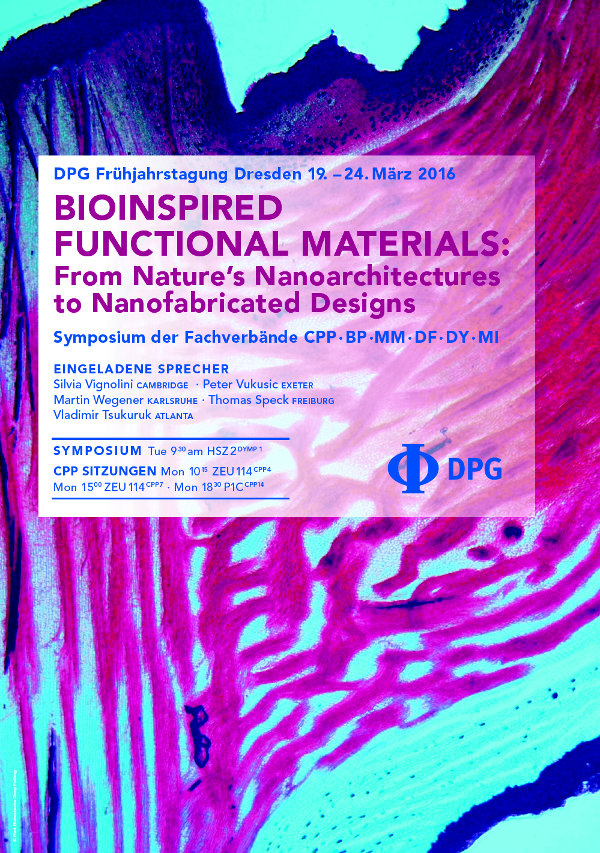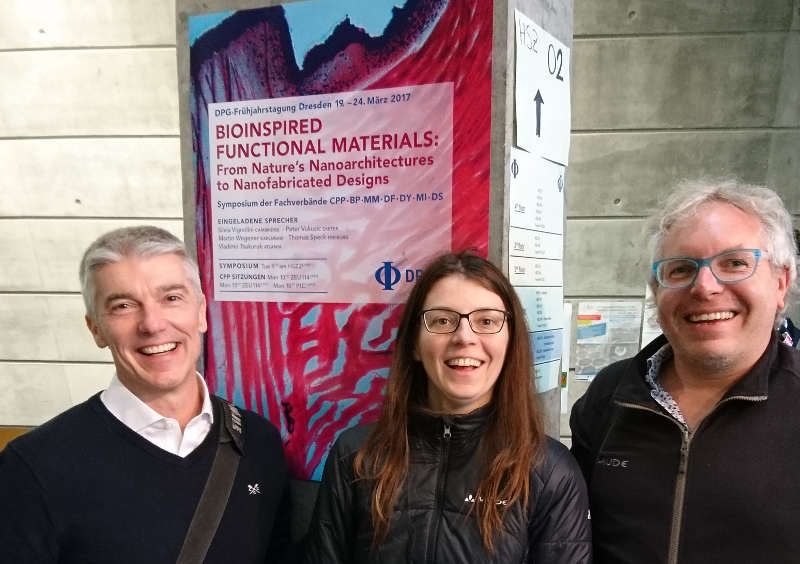From Nature’s Nanoarchitectures to Nanofabricated Designs

Thanks to all speakers and attendants of last week’s Dresden DPG-symposium
Bioinspired Functional Materials: From Nature’s Nanoarchitectures to Nanofabricated Designs.
Held as an interdisciplinary symposium at the Spring Meeting of the German Physical Society (DPG) in Dresden from 19-24 March 2017, the symposium attracted all up around 300 or so attendants, for five excellent talk. The full program for this session is available here!
 Biological materials often achieve functionality through complex spatial structures on the scale of nanometers and micrometers. Examples range from the brilliant optical reflections of butterfly wings and insects to the non-wetting properties of plant leaves. This symposium broadly addresses questions related to both function and formation of biological materials, as well as strategies for the self-assembly or the top-down fabrication of bio-inspired or bio-related structures and designs.
Biological materials often achieve functionality through complex spatial structures on the scale of nanometers and micrometers. Examples range from the brilliant optical reflections of butterfly wings and insects to the non-wetting properties of plant leaves. This symposium broadly addresses questions related to both function and formation of biological materials, as well as strategies for the self-assembly or the top-down fabrication of bio-inspired or bio-related structures and designs.
This symposium was organised by the topical groups Chemical Physics and Polymer Physics (CPP), Biological Physics (BP), Metals and Materials (MM), dielectric solids (DF), Dynamics and Statistical Physics (DY) und MI. The invited session will take place on Tuesday 21 March starting at 9:30 in HSZ 2.
Invited speakers of the symposium were
Prof Peter Vukusic, Exeter University, England : Biophotonics and insect nanostructures
Dr Silvia Vignolini, Cambridge University, England : Biological and synthetic chiral structures in cellulose
Prof Vladimir Tsukruk, Georgia Tech, Atlanta, USA : Biomimetic applications of nanomaterials and their self-assembly
Prof Thomas Speck, Freiburg, Germany : Biomechanics and interface properties of plant tissue
Prof Martin Wegener, Karlsruhe, Germany : Nanofabrication of functional materials
The symposium is organised by Gerd Schröder-Turk (Murdoch University Perth), Karin Jacobs (University Saarbrücken) und Robert Magerle (University Chemnitz).
